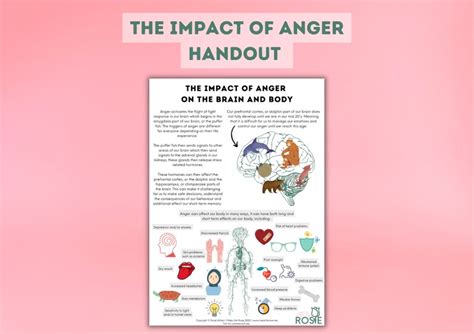Anger is a complex emotion that affects not just our mental state, but also our physical health. Often stigmatized as a negative trait, anger can be deeply misunderstood and mismanaged, leading to a plethora of health issues. For instance, the cardiovascular system takes a significant hit when we experience anger. Increased heart rate and blood pressure are common responses, which, if frequent, can lead to more severe conditions such as heart disease. Anger doesn’t stop at the cardiovascular system; it also affects our brains, gastrointestinal systems, and overall mental well-being. The common saying, ‘you will not be punished for your anger, you will be punished by your anger,’ rings true in this context.
There is a significant distinction between expressed anger and bottled-up anger. Bottled-up anger, as many commenters pointed out, can be particularly harmful. It creates a kind of ’emotional debt’ that, without release, festers inside us. Over time, this emotional debt can manifest in the form of chronic stress, leading to issues like gastrointestinal problems and even impairments in cognitive function. It is crucial to find healthy ways to express anger and let it go effectively. Contrarily, umpteen people find themselves in a conundrum about whether to express anger openly or keep it suppressed. Either extreme can be detrimental, indicating the need for balanced emotional regulation.
The neurochemistry behind anger is another intriguing aspect worth exploring. Neurotransmitters like adrenaline and cortisol flood our systems during bouts of anger, putting us in a heightened state of alertness. While these responses are beneficial in immediate survival situations, prolonged exposure can lead to detrimental effects. Chronic anger can trigger a constant release of these chemicals, contributing to long-term harm. This biochemical basis underscores the need to address anger not just as an emotional state, but as a physiological phenomenon that demands a nuanced approach. Prioritizing mental health and understanding the science behind anger can lead to healthier coping mechanisms.
There is often a philosophical debate surrounding anger management. Stoicism, for instance, is frequently misunderstood in this context. Contrary to popular belief, Stoicism does not advocate for the suppression of emotions but rather teaches the acknowledgment and prioritization of them in a healthy manner. Ignoring emotions altogether can be harmful, as pointed out by one commenter who found solace in Stoicism but later suffered from mental strain. The essence of Stoicism lies in recognizing anger as an optional response and learning to let it go. This philosophical approach provides a more sustainable method for managing anger without succumbing to its destructive potential.
Meditation and mindfulness are frequently recommended strategies for managing anger. Meditation techniques such as conscious breathing can provide immediate relief by activating the parasympathetic nervous system, which helps in calming the body. Commenters also suggested techniques like EMDR (Eye Movement Desensitization and Reprocessing) for reprogramming the brain’s responses to emotional triggers. These methods can be very effective in transforming how we deal with anger, making it more of a controlled response rather than a reactionary outburst. This type of mental training can elevate our ability to deal with emotions constructively, creating a balanced emotional state.
Interestingly, anger can sometimes serve as a motivational force for addressing injustice and spurring societal change. However, it’s essential that this anger is channeled constructively. Constructive expression of anger can be beneficial, whereas destructive, aggressive expressions often reinforce negative emotional states. For example, athletes and actors frequently employ brief expressions of frustration followed by mindful techniques to channel their anger productively. This combination allows them to maintain control and avoid the detrimental effects of unregulated anger. Thus, cultivating healthy ways to express and channel anger can mitigate its negative impacts while leveraging its motivational potential.
A significant insight into managing anger lies in our understanding of the underlying causes. Anger is often a surface emotion triggered by deeper issues such as fear or frustration. Addressing these root causes can diminish the occurrence of anger. For instance, by fostering a sense of security and control, individuals can reduce their propensity to react with anger. Emotional intelligence plays a vital role in this context. Understanding your emotions and practicing empathy can pave the way for more thoughtful, less reactionary responses. Regular emotional check-ins and therapeutic practices can further aid in maintaining emotional balance and well-being.


Leave a Reply